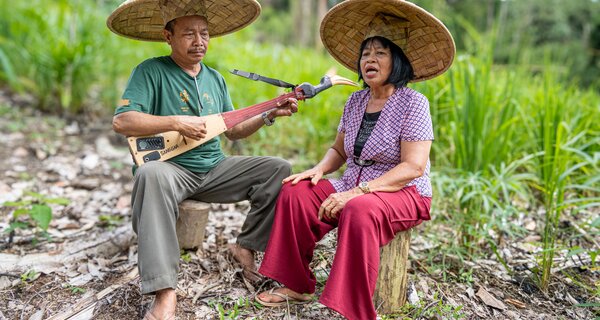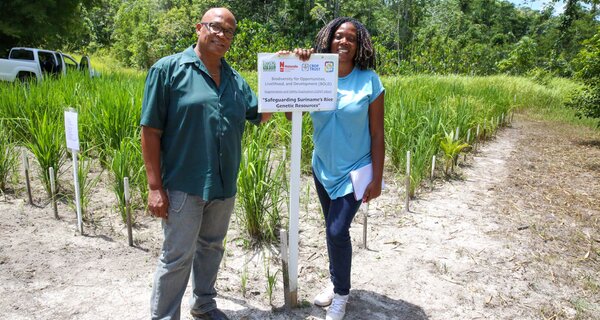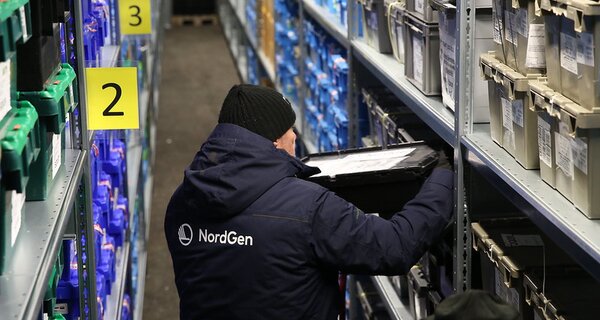Safeguarding Indonesian Crop Diversity: A Q&A with Standy Christianto
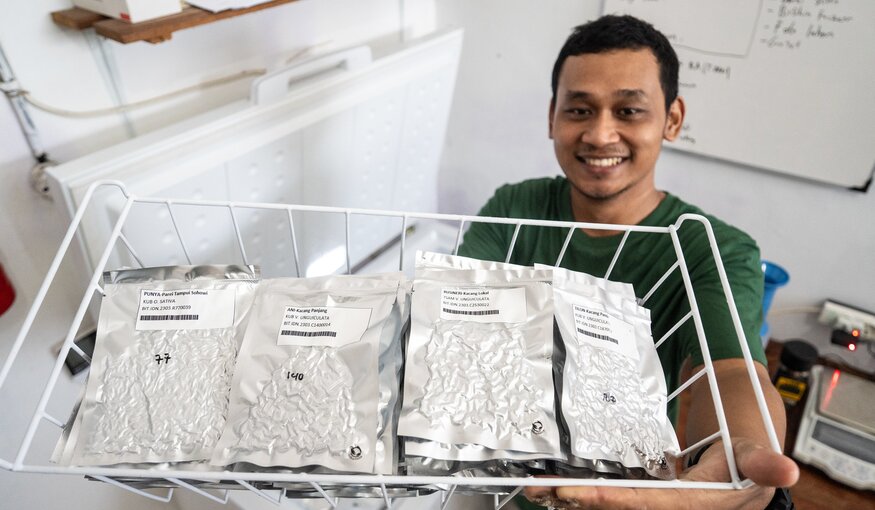
BIT’s Standy Christianto with Dayak seed samples stored in a freezer at BIT’s genebank in Palangka Raya, before shipping to the Svalbard Global Seed Vault. Photo: Michael Major/Crop Trust
12 February 2025
The Borneo Institute Foundation (BIT) was founded in 2007 to support the independence and culture of Indonesia’s Dayak community. Based in Central Kalimantan, a region rich in biodiversity, BIT works with farmers in the Manuhing Raya province to address the loss of local crop diversity through community seed banks.
With support from the Crop Trust’s Biodiversity for Opportunities, Livelihoods, and Development (BOLD) Project funded by the Government of Norway, BIT has conserved and regenerated seeds for several genebanks. These include local seed banks, Indonesia’s national genebank, and the Svalbard Global Seed Vault in the Arctic. In 2024, BIT reached a significant milestone by sending seed samples of rice, cowpea, eggplant and maize to Svalbard.
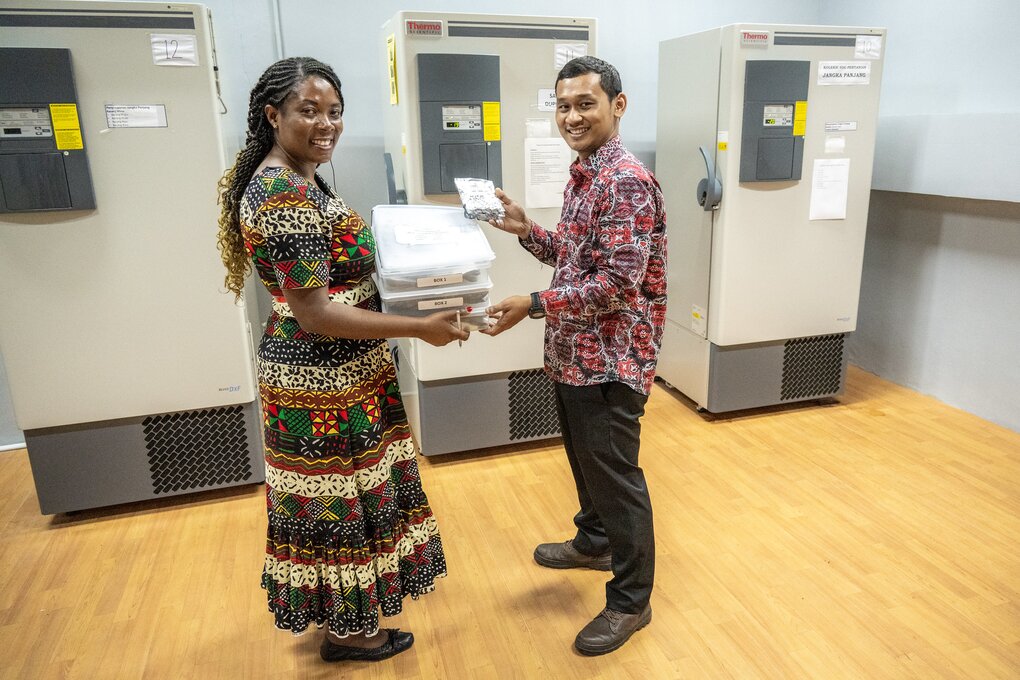
Standy Cristianto of the Borneo Institute presents seed packages from the village of Tumbang Samui in Central Kalimantan for conservation in the national genebank. Photo: Michael Major/Crop Trust.
As we prepare for the first Svalbard Global Seed Vault deposit of 2025, the Crop Trust reached out to Standy Christianto, BIT’s seed bank program and agricultural projects lead. Our conversation provides insights into the day-to-day operations of a busy genebank.
Crop Trust: How was the process of backing up Borneo Institute Foundation’s collection and what are some of the challenges you face?
Standy: As a genebank rooted in farmer groups, we focus on making sure that farmers understand and implement proper regeneration techniques to obtain the highest quality seeds. We educate them on protocols to prevent cross-pollination among varieties, using both traditional knowledge and modern practices such as nets and creating borders in their fields.
The unpredictable nature of weather patterns poses significant challenges to our regeneration efforts. Weather-related factors such as pest and disease outbreaks become difficult to control and mitigate, impacting seed quality and crop yields. Adapting to changing climatic conditions while maintaining seed purity and viability requires constant monitoring and adaptive management strategies.
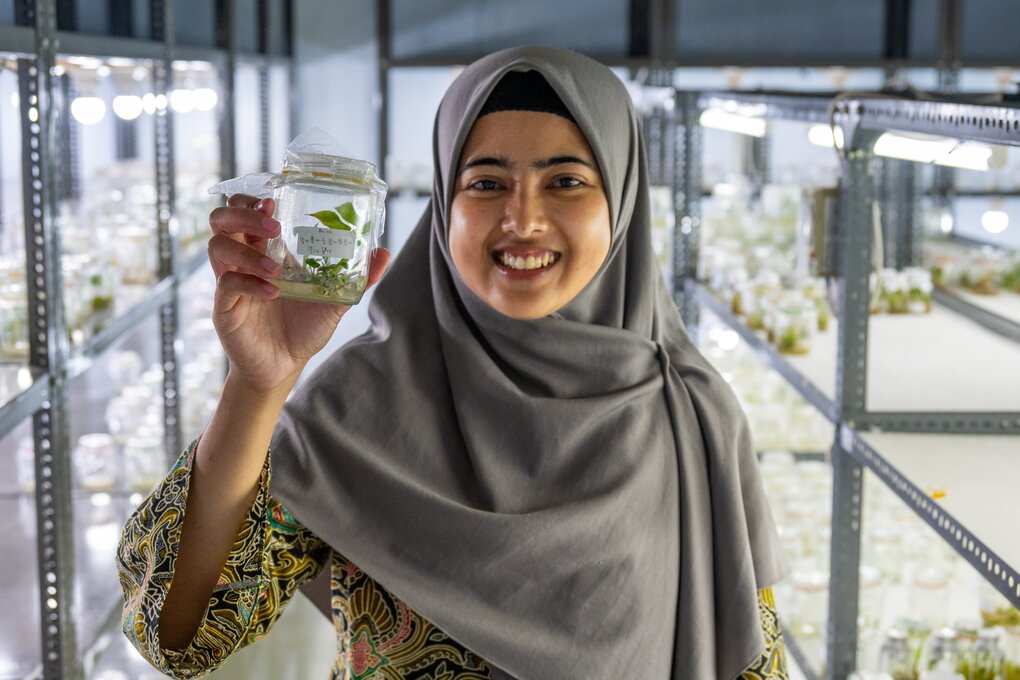
Refa Hafidza Esem showing in vitro sample. Photo: Michael Major/Crop Trust.
Sourcing skilled personnel for seed processing and data collection is also challenging. Working with thousands of seeds demands meticulous attention to detail and adherence to proper procedures. I’m always on a mission to find people who are willing and capable of handling the repetitive tasks involved in seed processing, such as weighing and cataloging each seed. This is crucial to ensure the accuracy and integrity of our seed bank operations.
Crop Trust: What kinds of seeds have you backed up in the Svalbard Global Seed Vault?
Standy: We’ve sent seed packets of culturally significant rice, maize and eggplant varieties.
"Rice Wings" hold immense cultural significance among the Dayak people for use in traditional ceremonies. These rice varieties are characterized by distinctive shapes resembling wings, which are believed to symbolize freedom or spiritual significance.
"Blood Rice" are varieties of rice with red-colored seeds. Valued for their striking appearance, these varieties may be used in special ceremonies, rituals or feasts among certain communities due to their symbolic association with vitality, strength or ancestral heritage.
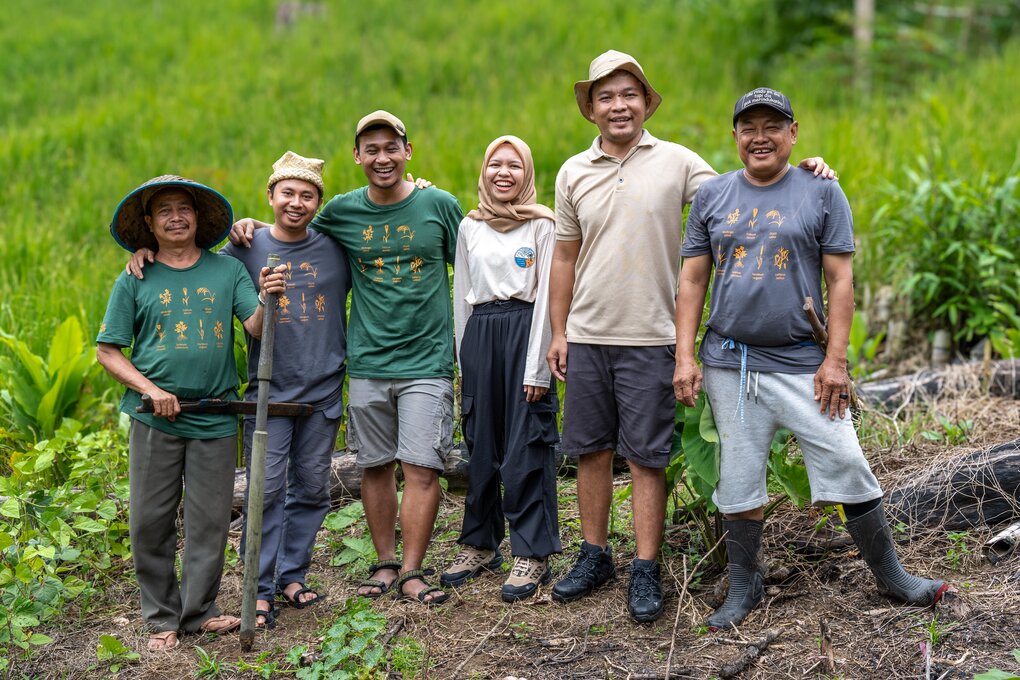
The BIT team with farmers from Mahuning Raya. Left to right: Geterson/Papa Depri, Ary Prasetio (Genebank Manager), Standy Christianto (Program Manager), Pija Ramadhani (Database officer), Pritendie (community organizer) and Ahmadi/Papa Dewi. Photo: Michael Major/Crop Trust.
Heritage maize varieties have a long history of cultivation by indigenous communities. These varieties exhibit unique traits such as drought tolerance, vibrant colors or specific culinary uses.
Indigenous eggplant varieties cultivated by specific ethnic groups have unique flavors, textures or medicinal properties that are deeply intertwined with local culinary traditions and cultural practices.
Traditional cowpea cultivars, which are known for their adaptability to different climates and soil conditions, play a vital role in the diets and livelihoods of many communities. Their diverse traits, including drought tolerance, pest resistance and nutritional value contribute to their cultural and agricultural importance.
Crop Trust: How did you choose which seeds to back up in Svalbard?
Standy: We consulted with agricultural experts and local communities to prioritize seeds that are becoming increasingly rare due to climate change, land conversion and declining cultivation. Seeds critical for food security and cultural traditions were given special attention. Our goal was to safeguard genetic diversity and cultural heritage for future generations.
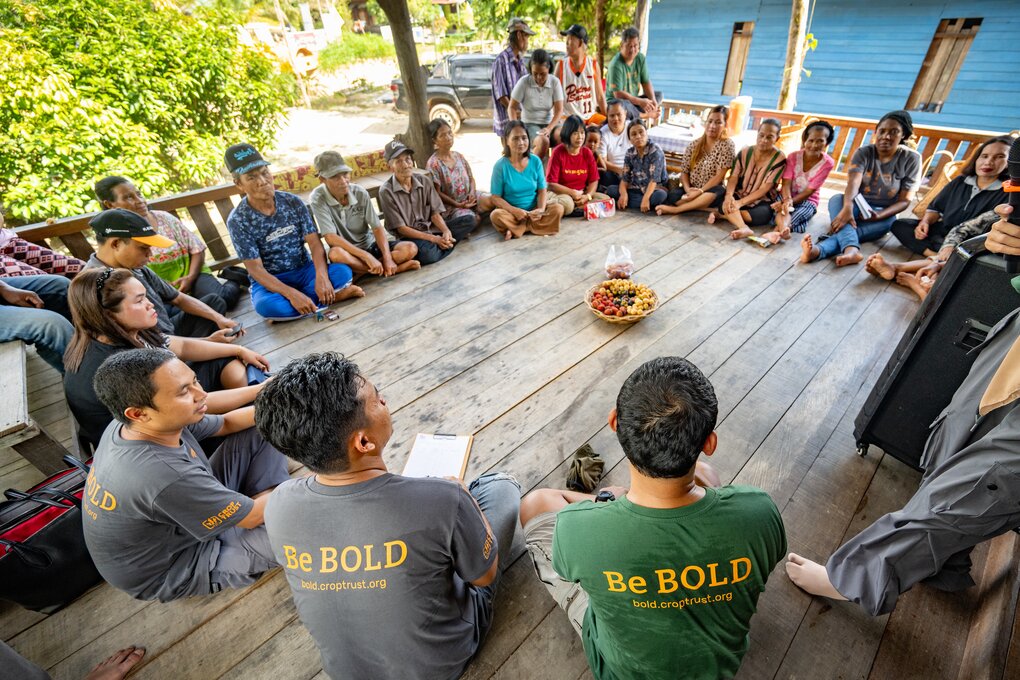
Meeting with farmers in Tumbang Samui. Photo: Michael Major/Crop Trust
Crop Trust: How has the BOLD Project supported your work?
Standy: BOLD has provided us with essential knowledge on seed regeneration and storage standards, improving the quality of our seed collections. They supplied resources and equipment and facilitated connections with other institutions like the Indonesian Center for Agricultural Biotechnology and Genetic Resources Research and Development, and of course the Svalbard Global Seed Vault. These partnerships have strengthened our capacity to protect biodiversity and promote sustainable agriculture.
Crop Trust: How do you feel about BIT’s role in preserving seeds?
Standy: It’s humbling and gives me a deep sense of purpose. Despite the challenges we face – like climate change and food insecurity – preserving seeds offers hope for a more sustainable future.
Since 2021, the Crop Trust has worked with 42 partners worldwide to regenerate and safeguard vital seed collections. Through the BOLD Project, these partners ensure that key crop diversity remains alive and thriving in genebanks, backed up in another location, and secured for the future in the Svalbard Global Seed Vault. This essential work, supported by the Government of Norway, strengthens biodiversity, food security, and resilience for generations to come.
This story is one of many about the dedicated partners who have worked for years to regenerate seeds and send them to Svalbard for safekeeping.
Categories: For Educators, For The Press, For Partners, BOLD, Food Security


